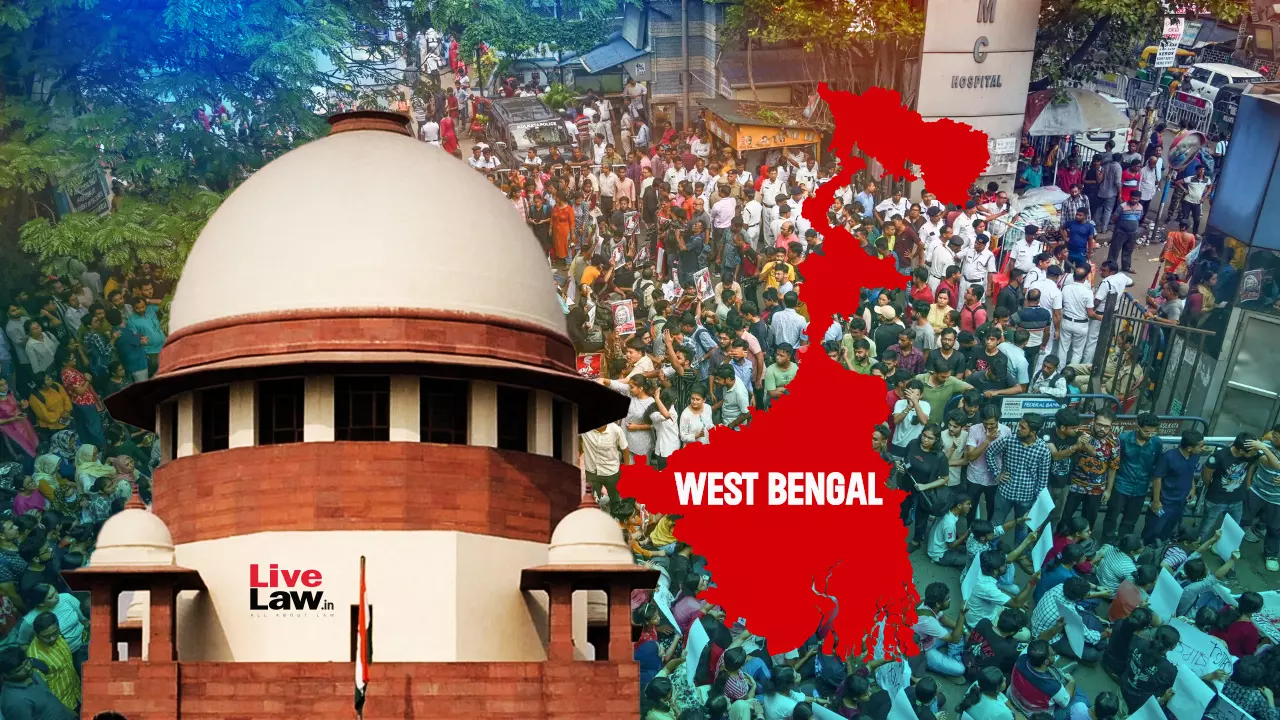 |
|
The Supreme Court of India, on September 9, 2023, took a significant step in the investigation of the rape and murder of a doctor at the RG Kar Medical College Hospital in Kolkata. The court, hearing the suo motu case, directed the State of West Bengal to produce the 'challan' that accompanied the deceased's body during the post-mortem examination. This document, the court highlighted, would contain crucial information about the articles and materials sent along with the body for autopsy.
The need for this specific document arose due to a contention raised by a party involved in the case, who alleged that the victim's clothes were not sealed and sent with the body to the post-mortem team. The court, recognizing the significance of this detail, expressed concern over the possibility of tampering with evidence and the potential for compromised investigation. Senior Advocate Kapil Sibal, representing the State of West Bengal, initially stated that the document was not readily available, leading the court to direct its production on the next hearing date, September 17.
The hearing also shed light on other concerning aspects of the investigation. The CBI, which took over the investigation from the Kolkata Police following a Calcutta High Court order, highlighted discrepancies in the forensic reports. The Solicitor General of India, Tushar Mehta, pointed out that the CBI had decided to send the samples for re-examination to AIIMS and other forensic laboratories outside West Bengal due to doubts about the findings of the initial forensic report. This decision, he explained, was based on inconsistencies in the samples and their handling, particularly the vaginal swab which, according to reports, was not preserved properly.
Further contributing to the court's concerns were several discrepancies pointed out by Advocate Phiroze Edulji, representing the petitioners in the Calcutta High Court. Edulji raised critical questions about the timing of the post-mortem, the seizure of evidence from the crime scene before the FIR registration, and the lack of proper handling of the victim's clothing. These concerns, coupled with the missing postmortem challan, further emphasized the potential for procedural violations and jeopardized investigation in the case.
In response to the mounting concerns, the court highlighted the importance of the challan as a vital document for establishing the chain of custody for evidence. The absence of this document, Justice JB Pardiwala remarked, raised serious questions about the integrity of the investigation. He stressed that its missing status indicated a potentially significant oversight or deliberate act of omission, warranting immediate attention and explanation.
The court, demonstrating its commitment to ensuring a fair and thorough investigation, directed the CBI to request the document from the State of West Bengal. Recognizing the urgency of the matter, the court set a deadline for the production of the challan. This decision underlines the court's determination to address the concerns surrounding the investigation and ensure that all necessary evidence is secured and examined.
Beyond the procedural and forensic issues, the court also addressed concerns regarding security measures at the RG Kar Hospital. The Solicitor General highlighted the inconvenience faced by the CISF personnel deployed to provide security at the hospital due to the lack of adequate accommodation. Responding to this concern, the court directed the West Bengal home department to facilitate the allocation of appropriate accommodation for the CISF personnel.
The hearing also addressed concerns about the dissemination of the deceased doctor's photographs on social media platforms. The court, recognizing the violation of the deceased's privacy and the emotional distress caused by the unauthorized sharing of these images, directed the immediate removal of such photographs from all social media platforms. This action demonstrates the court's commitment to protecting the dignity of the deceased and ensuring that their memory is respected.
The Supreme Court's involvement in this case underscores the gravity of the situation and the need for a thorough and transparent investigation. The court's actions, including the demand for the postmortem challan, the directive to the CBI to re-examine the forensic evidence, and the measures taken to address security concerns and prevent the dissemination of sensitive images, are essential steps towards ensuring justice for the deceased doctor and her family. The court's determination to ensure a fair and impartial investigation serves as a strong message of accountability and commitment to justice in the face of a tragic loss.
